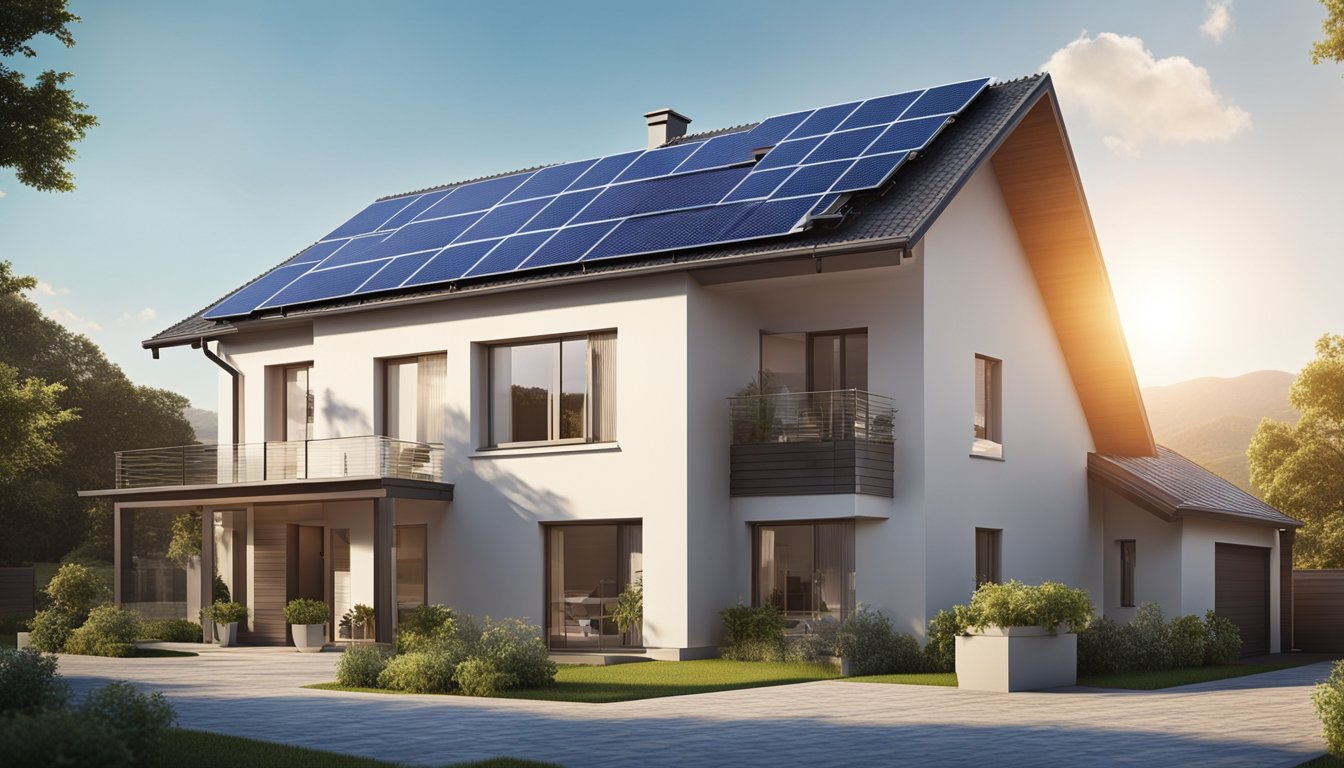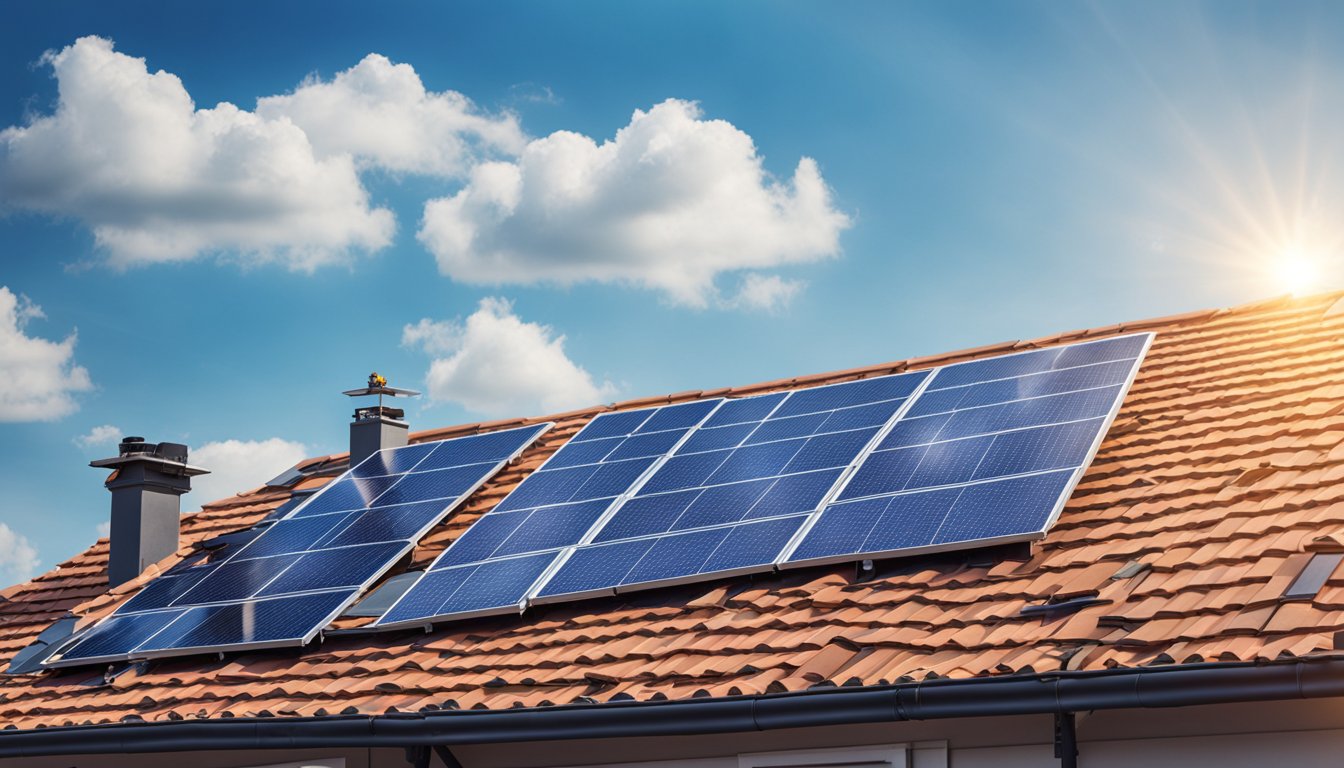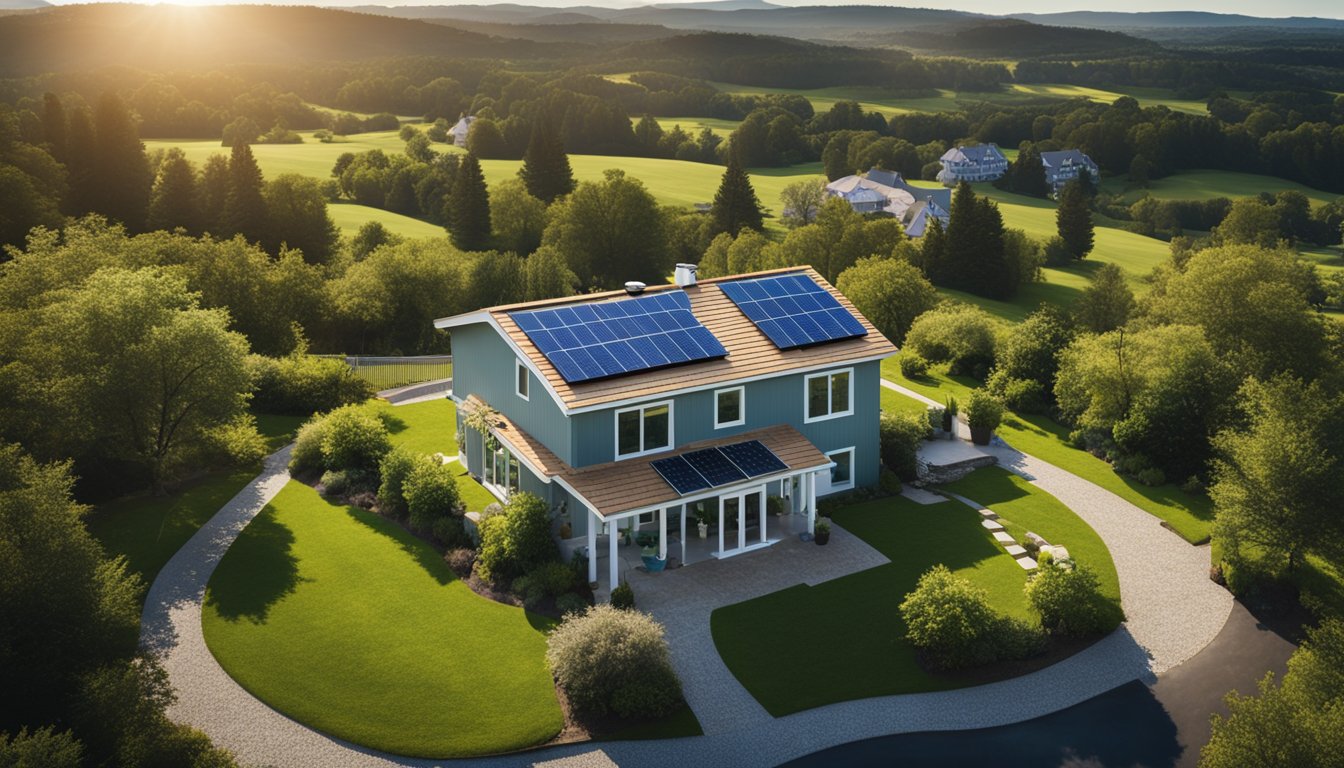Late updated: 28 Jun 2024 15:06
Written by: Eleanor Hartman
How To Set Up A Home Solar Power System In The UK: A Comprehensive Guide
Switching to solar power is an excellent way to reduce our household energy costs and contribute to a greener future. Many UK homeowners are exploring the idea, but setting up a home solar power system can seem daunting. The key to a successful installation lies in proper planning and understanding the system’s components.

Solar panels capture the sun's energy and convert it into electricity. For a seamless installation, we need to prepare space for necessary accessories like solar inverters and batteries. This preparation ensures that everything fits perfectly and functions efficiently. Timing the installation process and possibly coordinating with professionals will bring our solar power system to life.
Investing in solar energy involves an upfront cost. Our primary goal is to ensure that this investment is sustainable and maximises energy savings, particularly during the sunny months. With careful consideration and timely actions, we can enjoy the substantial benefits of renewable energy.
Key Takeaways
- Proper planning and understanding are crucial for successful solar power installation.
- Allocate space for components like solar inverters and batteries.
- Initial investment leads to long-term energy savings.
Understanding Solar Power and Its Benefits
We will explore the fundamental elements of solar energy, its substantial advantages for homeowners, and the financial incentives available to support investment in renewable energy systems.
The Basics of Solar Energy
Solar energy harnesses sunlight to generate electricity. Solar panels are primarily composed of small units called photovoltaic cells, which convert sunlight into direct current (DC) electricity. In the UK, panels are typically south-facing for maximum exposure.
Solar energy is classified as renewable and reduces dependence on finite resources like coal and natural gas. The efficiency of solar panels, affected by factors like positioning and shading, determines the amount of energy produced.
Investing in a system involving solar thermal panels, which heat water directly or photovoltaic (PV) panels for electricity generation, can substantially cut household energy bills.
Advantages of Home Solar Systems
One significant advantage of installing a home solar system is lower electricity bills. By generating renewable electricity, homeowners can significantly reduce their reliance on grid energy, leading to savings over time.
Home solar systems also decrease our carbon footprint. Using solar power means less carbon dioxide and other greenhouse gases are emitted, contributing to environmental conservation.
These systems enhance energy independence, ensuring a stable electricity supply even during grid outages. By incorporating battery storage, homes can store excess energy generated during sunny periods for use later.
Solar panels also increase property value, with homes featuring these systems often selling at a premium due to their energy efficiency and potential for lower utility costs.
Financial Incentives and Schemes
Several financial schemes and incentives make investing in solar energy more attractive. In the UK, the Smart Export Guarantee (SEG) allows homeowners to sell surplus energy back to the grid, providing a source of income.
There are also solar panel grants available, offering subsidies to reduce the initial investment cost. These grants may vary based on location and specific criteria, helping to make solar installations more affordable.
Additionally, homes with solar energy systems often achieve higher Energy Performance Certificate (EPC) ratings, which can lead to better mortgage rates and increased property value.
By taking advantage of these incentives, the initial investment in a solar power system can become more financially viable, accelerating the return on investment.
Planning and Installing Your Solar Panel System

Setting up a home solar power system involves careful planning and a systematic installation process. We will guide you through evaluating your energy needs, choosing the right types of solar panels, and understanding the installation steps and legal requirements.
Evaluating Your Requirement and Usage
First, assess your household's energy consumption. Review past electricity bills to identify your average kWh usage. This helps determine how many solar panels you need.
We recommend using an online calculator to estimate the system size based on your location and daily energy use. Consider peak sun hours in the UK to gauge potential energy production. An optimal setup aligns energy output with your household's needs, ensuring efficiency.
Choosing Solar Panel Types and Installation Options
Selecting the right solar panels is essential. Monocrystalline panels offer high efficiency and longevity but come at a higher price. Polycrystalline panels are more affordable but slightly less efficient. Thin-film panels are lightweight and flexible, suitable for varied applications.
Installation options include roof-mounted and ground-mounted systems. Roof mounts are common for homes with adequate roof space and the right angle for sun exposure. Ground mounts work best for properties with spacious gardens and easier maintenance access.
The Installation Process
The installation process begins with hiring reputable, MCS-certified installers. They will first conduct a site survey to determine optimal panel positioning.
Scaffolding is set up for roof installations. The mounting system, including rails and frames, is then attached to the roof or ground. Solar panels are fixed using bolts, ensuring secure placement. Solar inverters convert DC from the panels to AC for home use, and the system is connected to the main electricity supply.
Legal Considerations and Permissions
In the UK, you might need planning permission for solar panel installations, especially for listed buildings or conservation areas. Contact your local council to verify requirements.
Ensure the installer provides an Energy Performance Certificate (EPC) for feed-in tariff eligibility. It's crucial to comply with regulations to avoid future legal issues. Consulting with professionals helps in adhering to all legal considerations effectively.
Frequently Asked Questions

As you consider setting up a home solar power system in the UK, there are several frequently asked questions to address. These range from cost and legal aspects to the effectiveness of different brands and the potential impact on electricity bills.
What are the requirements for securing government subsidies for residential solar installations in the UK?
To qualify for government subsidies such as the Smart Export Guarantee, the solar system must be installed by a certified installer accredited by the Microgeneration Certification Scheme (MCS). Additionally, the panels and associated equipment need to meet specific technical standards to be eligible.
What is the average cost of installing solar panels for homes in the UK?
The average cost of a 4kWp solar panel system in the UK ranges between £5,000 and £8,000. This cost includes the price of the panels, installation fees, and any additional equipment needed for a robust setup, such as inverters and mounting systems.
Can a homeowner in the UK legally install solar panels without professional assistance?
Legally, a homeowner can install solar panels without professional help. However, to qualify for government incentives and ensure safety and efficiency, it is strongly recommended that installations be carried out by certified professionals. Self-installation could also void product warranties.
What steps are involved in connecting solar panel systems to the electrical grid in a UK household?
Firstly, you need to ensure your solar system meets all regulatory and safety standards. After installation, you must notify your Distribution Network Operator (DNO). Once approved, a smart meter is often installed to measure electricity exported back to the grid, enabling access to schemes like the Smart Export Guarantee.
How effective are IKEA's solar panel solutions for UK residents in comparison to other brands?
IKEA offers solar panel packages in partnership with specialist companies. These solutions are generally competitive in terms of price and quality. The effectiveness of IKEA's panels is comparable to other leading brands, making them a viable option for UK homeowners seeking reliable and cost-efficient solar solutions.
What impact does the adoption of solar panel energy have on traditional electricity bills for UK homes?
The adoption of solar panels can significantly reduce electricity bills. By generating your own electricity, you decrease reliance on grid power. Any surplus energy can be sold back to the grid through schemes like the Smart Export Guarantee, further offsetting costs. Savings will vary based on system size, energy consumption, and sunlight exposure.